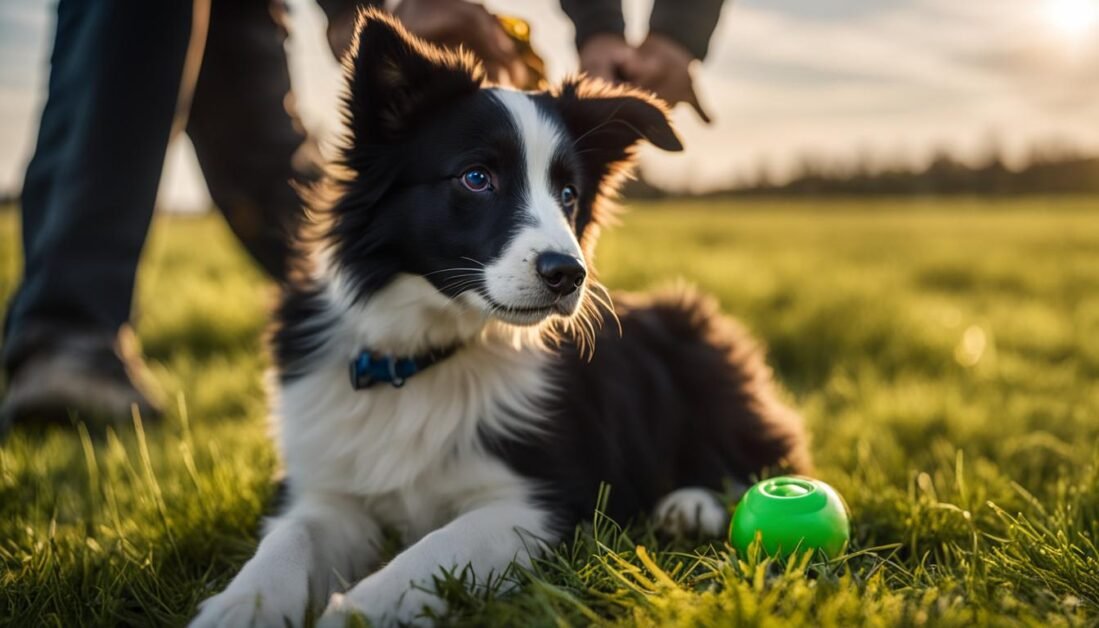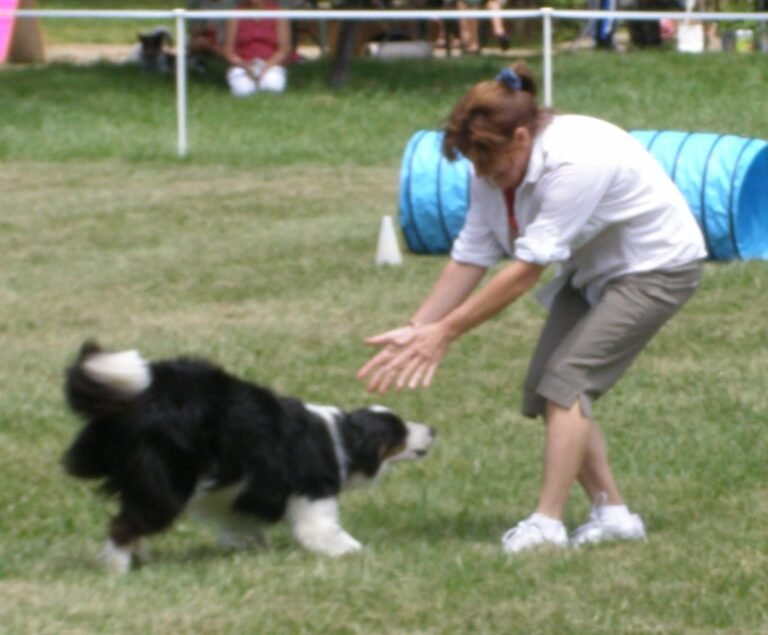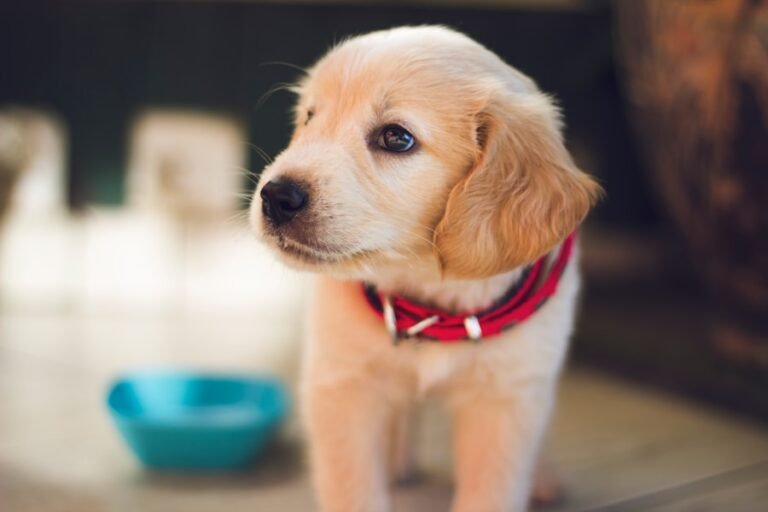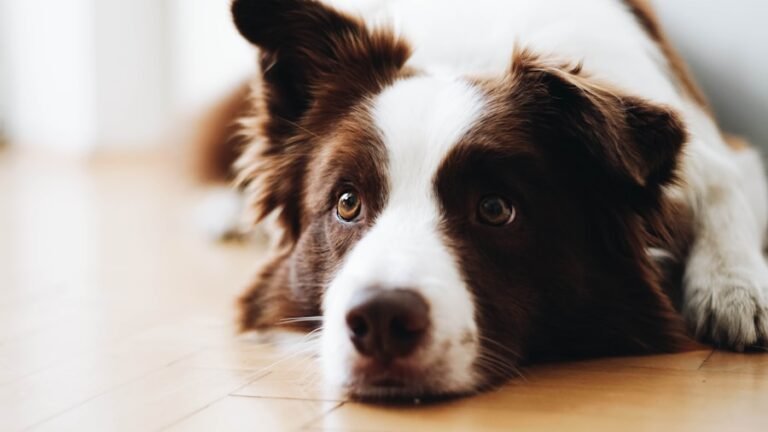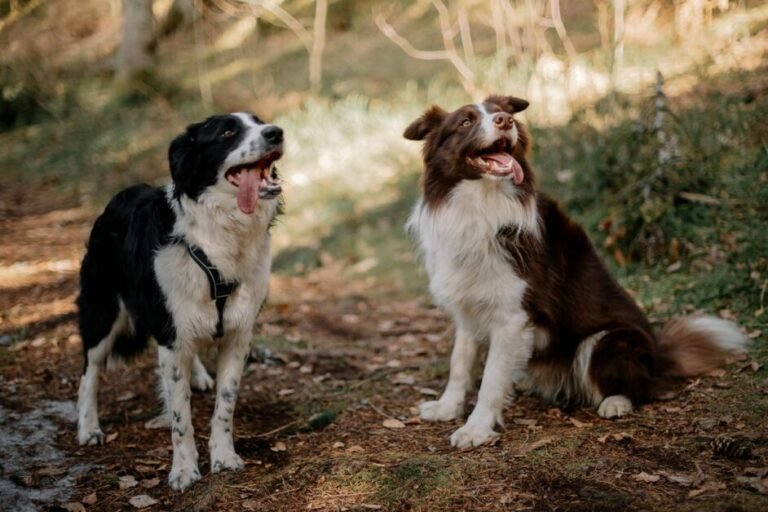When to Train a Border Collie Puppy: Top 20 Expert Tips & Advice
When to train a border collie puppy? Are you a proud owner of a Border Collie puppy? Congratulations! Border Collies are highly intelligent dogs known for their agility and quick learning abilities. To ensure that your puppy grows up to be a well-behaved and obedient companion, training should start at the right time.
So, when to train a border collie puppy? According to experts, it is recommended to begin training as early as 8-9 weeks old. But what does the training schedule for a Border Collie puppy look like?
During the first month, the focus should be on socialization, potty training, and establishing the puppy’s name recognition. It’s important to introduce your puppy to various people, animals, and environments, helping them become comfortable in different situations. Potty training and teaching them their name will lay the foundation for further training.
By the third month, basic obedience commands like sit, stay, and heel can be introduced. This is the time to establish boundaries and teach your puppy good manners. Pre-agility training can begin around four months, helping them develop their coordination and agility.
As your puppy grows, more advanced training can be started around six to eight months. Consistency is key when training a Border Collie, so short and focused training sessions of 10-20 minutes are preferred. It’s essential to establish a firm leadership role while maintaining a positive and patient tone.
Treat training and positive reinforcement are highly effective methods for training a Border Collie. Giving them rewards and praise when they exhibit the desired behavior will motivate and encourage them to continue learning.
Remember, Border Collies are a high-energy breed that requires plenty of physical exercise and mental stimulation. Setting a routine schedule will help them thrive and prevent them from becoming bored or engaging in destructive behaviors.
Lastly, crate training can aid in house training and provide a safe space for your puppy. When done correctly, it can help them feel secure and reduce accidents in the house.
When to train a border collie puppyKey Takeaways:
- Start training your Border Collie puppy as early as 8-9 weeks old.
- Focus on socialization, potty training, and establishing their name recognition during the first month.
- Introduce basic obedience commands around the third month.
- Gradually progress to more advanced training around six to eight months.
- Use positive reinforcement and short, focused training sessions for optimal results.
- Provide plenty of physical exercise and mental stimulation to keep your Border Collie engaged and prevent destructive behaviors.
- Crate training can be beneficial for house training and creating a safe space for your puppy.
The Importance of Early Training for Border Collie Puppies
Training a Border Collie puppy from an early age is crucial for their development and behavior. Starting training at the right time sets a solid foundation for a well-behaved and well-adjusted adult dog.
During the first month, focus on teaching basic house rules such as potty training and name recognition. By the third month, introduce basic obedience commands and prioritize socialization. Pre-agility training can start around four months, followed by more advanced training around six to eight months.
Establishing a routine and consistency in training sessions helps the puppy learn and progress. It is important to set obedience training milestones at each stage and continuously challenge and stimulate the puppy both physically and mentally.
when to train a border collie puppy? Starting training early not only helps shape the puppy’s behavior but also strengthens the bond between the owner and the dog. It allows for a deeper understanding and communication, leading to a harmonious relationship in the long run.
Tips for Successful Border Collie Training
Training a Border Collie puppy can be a rewarding but challenging experience. These intelligent and energetic dogs require special attention and techniques to ensure successful training. Here are some tips to help you train your Border Collie puppy effectively:
- Start early: Begin training your Border Collie puppy as soon as possible. Early socialization and basic obedience training are essential for their development.
- Keep their attention: Border Collies have a high level of energy and can easily get distracted. Choose a quiet and distraction-free training area to keep their focus on the training.
- Set firm boundaries: Establish clear boundaries and rules from the beginning. Consistency is key, so make sure to enforce the rules consistently to avoid confusion.
- Use positive reinforcement: Reward good behavior with treats, praise, and affection. Positive reinforcement helps motivate your Border Collie and makes the training experience more enjoyable for both of you.
- Short and focused training sessions: Border Collies have short attention spans, so keep your training sessions short and focused. Aim for 10-20 minutes of training at a time to prevent boredom or frustration.
- Maintain patience and consistency: Training a Border Collie requires patience and consistency. Be patient with your puppy and stay consistent with your training methods to achieve the best results.
- Provide mental and physical stimulation: Border Collies are highly intelligent and active dogs. Make sure to provide them with plenty of mental and physical exercise to keep them engaged and prevent destructive behaviors.
By following these tips, you can establish a strong bond with your Border Collie puppy and set them up for a lifetime of good behavior and obedience.
Crate and House Training for Border Collie Puppies
When it comes to training a Border Collie puppy, crate and house training are essential aspects to consider. Crate training provides numerous benefits, including aiding in house training and providing a safe space for your puppy. To properly crate train your Border Collie, it is crucial to introduce the crate gradually and create a positive association with it. Use treats and positive reinforcement to encourage your puppy to enter the crate willingly. The crate should be seen as a den or home, where your puppy can sleep, eat, and relax comfortably.
It’s important to note that your puppy should only be confined to the crate when necessary, such as during sleep or when you’re not able to supervise them. Extended periods of confinement can lead to anxiety and stress. Consistency is key in crate training. Establish a routine by setting specific times for your puppy’s meals and potty breaks. By sticking to a consistent schedule, your puppy will learn to anticipate these routines and adapt accordingly.
Tips for Successful Crate Training:
- Introduce the crate gradually using positive reinforcement
- Make the crate comfortable with bedding and toys
- Keep the crate in a location where your puppy can still feel part of the family
- Establish a routine for meals and potty breaks
- Avoid using the crate as a form of punishment
Alongside crate training, proper house training is essential for your Border Collie puppy’s development. Consistency and a schedule are key to successful house training. Take your puppy outside regularly, especially after meals, naps, or play sessions, to give them the opportunity to eliminate in the appropriate area. Praise and reward your puppy with treats and positive reinforcement when they go potty outside. This will reinforce the desired behavior and help them understand where it’s appropriate to relieve themselves.
Remember, accidents are bound to happen during the house training process. When accidents occur, it’s important not to punish your puppy. Instead, clean up any messes thoroughly and redirect your puppy’s attention to the appropriate potty area. Over time, with consistency and patience, your Border Collie puppy will learn proper house training habits and become a well-behaved and fully house-trained adult dog.
When to train a border collie puppy conclusion:
Training a Border Collie puppy requires dedication, patience, and consistency. Starting training at an early age and focusing on socialization, potty training, and basic obedience commands will set a solid foundation for a well-behaved adult dog.
Short and focused training sessions, positive reinforcement, and establishing a routine are essential for success. Crate and house training should be implemented simultaneously to teach proper behavior and prevent accidents.
By following these tips and advice about when to train a border collie puppy, owners can create a strong bond with their Border Collie and enjoy a well-trained and well-adjusted companion. Training a border collie puppy is a rewarding journey that will result in a well-behaved and happy dog.
FAQ’s : When to train a border collie puppy:
When should I start training my Border Collie puppy?
It is recommended to start training your Border Collie puppy as early as 8-9 weeks old.
What should I focus on during the first month of training?
During the first month, the focus should be on socialization, potty training, and establishing the puppy’s name recognition.
What basic commands can I introduce by the third month?
By the third month, basic commands like sit, stay, and heel can be introduced.
When can I start pre-agility training for my Border Collie?
Pre-agility training can begin around four months.
When can I start more advanced training for my Border Collie?
More advanced training can be started around six to eight months.
How long should each training session be?
Short, focused training sessions of 10-20 minutes are preferred.
What methods are effective for training a Border Collie?
Treat training and positive reinforcement are effective methods for training a Border Collie.
How much exercise and mental stimulation does a Border Collie need?
Border Collies require plenty of physical exercise and mental stimulation to keep them engaged and prevent destructive behaviors.
Is crate training recommended for a Border Collie puppy?
Yes, crate training can aid in house training and providing a safe space for the puppy.
What is the key to successful Border Collie training?
Dedication, patience, and a strong bond between the owner and the dog are key to successful Border Collie training.
When to train a border collie puppy: Source Links
- https://bordercolliehealth.com/border-collie-training/
- https://www.hepper.com/how-to-train-a-border-collie/
- https://a-z-animals.com/blog/training-your-border-collie-best-tips-common-mistakes-and-more/

